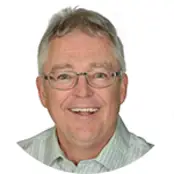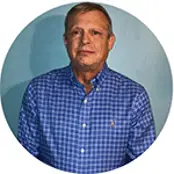Forming section enhancements

As the Pulp and Paper industry progresses, the demand for mills to produce higher quality products as well as production capacity increases. Mills are often struggling to find new operating parameters to meet this demand efficiently. One bottleneck is often the wet end of the paper machine. This webinar introduces the principles of dewatering and formation on a paper machine forming section along with a closer look at the various components that dress a forming table to better understand the principles behind a forming table arrangement and operation.
In this webinar, you will learn more about:
- Drainage principles
- Physics behind forming tables
- Modern technology & enhancements
PRESENTERS

Guy Bedard
Product Manager, Headbox & Forming Valmet
With over 33 years of experience in the Pulp and Paper industry, Guy is a professional engineer who joined Valmet in 2019 through the acquisition of GL&V. He has spent the last two decades specializing at the wet end of the paper machine addressing process and operational issues. Guy is now dedicated to wet end technologies, forming table set-up and drainage engineering. He has also been responsible for paper machine rebuild and optimization projects globally, working from the headbox to the winder. He was a course instructor for PAPTAC's Theory and Practice of Papermaking – Twin Wire Former classes.

Mark Landry
Product Manager, Wet End Valmet
Mark Landry has 23 years of experience in the Pulp and Paper industry. He began his career working for Johnson Foils for 16 years before joining the GL&V Dewatering Group, which was acquired by Valmet in 2019. Mark has held various positions within the industry including Design Engineering, Applications Engineering, Product Design, and Product Development for both domestic and international markets. He has been directly involved with many table rebuild projects that included equipment design, installation, and machine optimization. Mark’s design experience includes single wire formers, twin wire formers, multi-ply formers and gap formers.